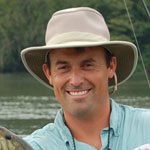
Prescribed fire provides valuable benefits for both wildlife and forests, but the fire itself is not the only beneficial result. Fire breaks and other types of cleared corridors provide excellent foraging opportunities for deer, turkeys and other wildlife species. And a rush of food during the winter is just what the doctor ordered since there is little food available.
Typically, perimeter and interior fire breaks are installed by a bulldozer and maintained by a farm tractor pulling a disk. These bladed fire breaks, approximately 8 to 10 feet wide, exposes the mineral soil to sunlight.
Maintaining forest openings of any size and utility right-of-ways will also provide benefits to wildlife during the winter.
The millions of herbaceous seeds lying dormant in the soil wake up like Frankenstein and begin the race to colonize. This early successional growth can be extremely vigorous because they are attempting to establish quickly to take up space and all of the available sunlight. And when young plants grow fast, these new shoots are very tender and quite tasty, providing excellent nutrition for wildlife.
However, not all seeds lying dormant in the soil will germinate and grow. Since winter soil temperatures remain low, many of the grasses and summertime plants will remain dormant until soil temperatures rise above 70 degrees. Winter soil disturbance generally results in a broadleaf plant response such as: partridge pea, clovers and ragweed.
In addition to food, fire breaks along forest edges create travel paths abundant with food. Turkey and deer will frequently use maintained fire breaks for travel. Keeping fire breaks plowed annually will provide a year-around food source and travel corridor for hunting opportunities and will prevent costly reconstruction later.




Be the first to comment